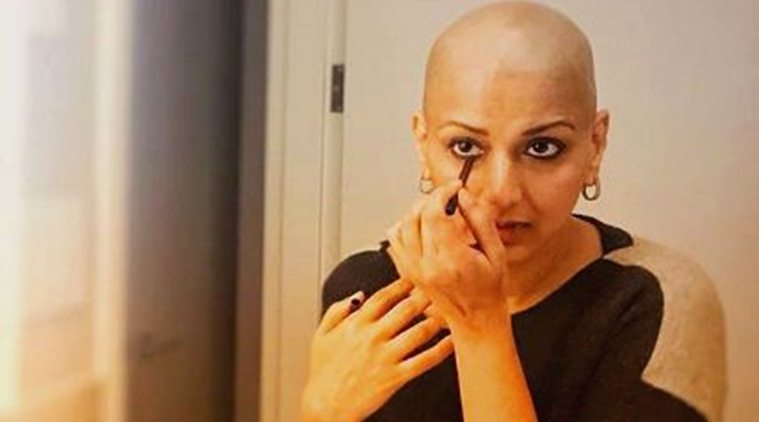
Early last year, actor Sonali Bendre revealed on Instagram that she was fighting a “high grade cancer” that had metastasized. In her first public appearance after her diagnosis, having just undergone chemotherapy, she talked about struggling to accept the new changes in her body: Missing her eyebrows and eyelashes, accepting that she now looked different. “I’ve always thought I’m someone comfortable with my body,” she said, “but obviously, I’m not. Everytime I step out, I have to cross a threshold. There is fear in the pit of my stomach. It holds me down. I start making excuses for it. Then I say no, there is no excuse. No hair, that’s fine. Body’s different, it’s okay. I’m not comfortable with my body yet, but I will be. I tell myself that I will become comfortable with my body. I will find beauty in it.”
The interview was raw and brave. And it brought home to me a personal struggle of my own. I am currently struggling with a milder, not congruent, but similar predicament. I’m struggling with loving a body that wears the scars of disease.
There is a term in moral psychology for the phenomenon of being inspired by someone. It is called elevation. Jonathan Haidt, a pioneering moral psychologist, describes elevation like this: “A warm, uplifting feeling that people experience when they see unexpected acts of human goodness, kindness, courage, or compassion.” Elevation is what happens when we experience moral beauty. When we see what we most value manifest in the world. We expand. We rise. Elevation is how our heroes make us feel. It is how Sonali Bendre makes me feel.
Scientists have studied elevation and have found results that are tremendously heartening. In an experiment that induced elevation in new mothers, it was found that the mothers were then more likely to leak milk, nurse or cuddle their babies when elevated. Elevation was also likely to improve functioning in those suffering from depression and anxiety. Elevation was seen to increase prosocial behaviour, and in another experiment, altruistic behaviour. We are kinder, more effective, generous and loving when we are elevated. In other words, when they inspire us, when they reflect what we value in the world, our heroes make us better people.
But sometimes our heroes let us down. In a documentary released last month, Leaving Neverland, two men describe how when they were seven and 12 respectively, Michael Jackson abused their trust, and them. Jackson frequently invited Wade Robson and James Safechuck — both MJ fans — on lavish holidays and to stay with him in the glorious grounds of Neverland, often with their families. And so taken in were these families by Jackson’s generosity and success, that nobody questioned why he was sleeping with the little boys in his bedroom at night.
And so it is with many heroes, public and personal, toppled by #Metoo. For long their crimes were eclipsed by their status as heroes and by our experiences of elevation. And now that they have been outed — comedians, actors, artists, friends, colleagues, brothers, fathers — we have to confront that they don’t live by ideals we thought we shared. That our experiences of elevation from them were a lie.
This is a loss, and it leaves us either grieving or in denial (which is but a stage of grief). We are hurt, confused and betrayed. The opposite of elevation, according to Haidt, is disgust, and we are disgusted.
Having a hero comes with risk. It requires placing faith outside ourselves. That opens us up for elevation, but also for betrayal. When we have heroes, we are easily inspired, but we are also easily misled. Does this mean that we should lock away our hearts, abandoning all our heroes altogether? Or should we trust still: Leave our hearts dangerously open to the possibility of elevation?
The answer probably lies somewhere in between.
The writer is a Bengaluru-based journalist